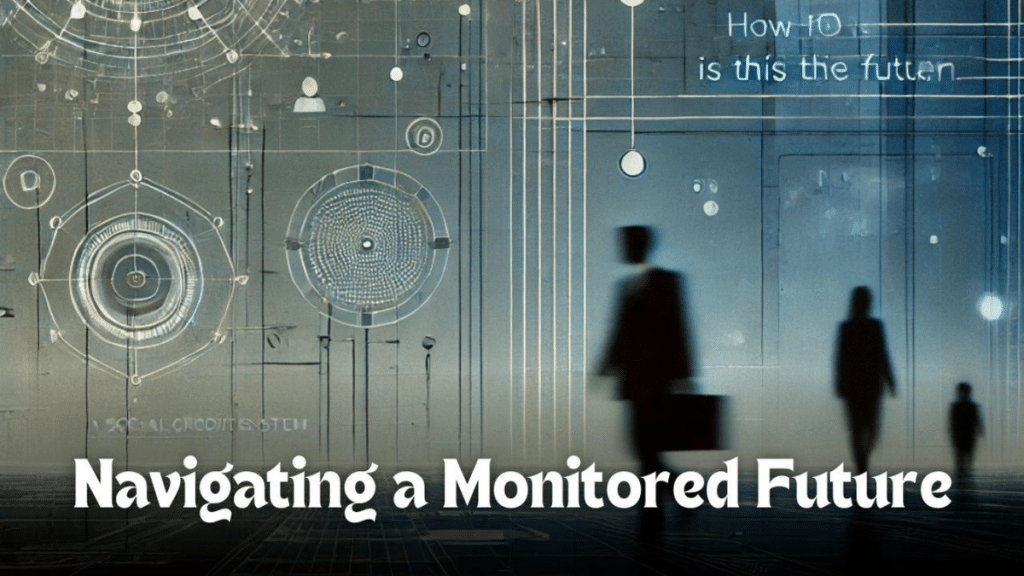The concept of a social credit system might sound like something from a dystopian novel, but with the rapid advancement of the Internet of Behaviors (IoB), this idea is becoming increasingly feasible. By collecting and analyzing massive amounts of behavioral data, IoB is laying the groundwork for systems that could monitor, rate, and reward or penalize individuals based on their actions.
Understanding IoB’s Role in Behavioral Monitoring
The Internet of Behaviors (IoB) refers to the collection of data from user interactions, combined with analysis to understand and influence behavior. This goes beyond basic tracking, delving into aspects like emotional responses, purchasing habits, and social interactions. According to an insightful study by ExpressVPN, this data is not just gathered but utilized to predict future behavior and make decisions about users’ online experiences.
When you consider how IoB can aggregate and analyze behavioral data, it’s easy to see the potential for creating a social credit-like system. Governments and corporations could use IoB technology to evaluate individuals based on their actions, choices, and even social connections, impacting their access to services or opportunities.
The Implications of a Social Credit System
A social credit system would assign scores to individuals based on their behaviors, much like a financial credit score. However, instead of just financial activities, it could include factors like punctuality at work, online interactions, and even social media activity. Such a system might reward individuals with high scores through easier access to loans, job opportunities, or travel benefits while penalizing those with lower scores by restricting certain privileges.
This concept is already taking shape in some parts of the world, where governments and private entities are experimenting with social credit-like systems. With the rise of IoB, it’s becoming more practical to gather and analyze the required data to monitor and rate individuals on a large scale.
Concerns About Privacy and Autonomy
The potential implementation of a social credit system raises numerous ethical concerns, particularly about privacy and autonomy. IoB relies heavily on collecting and processing personal data, often without explicit consent. As companies and governments build detailed profiles of individuals, the question of who controls this data and how it is used becomes more critical than ever.
Critics argue that a social credit system powered by IoB could lead to increased surveillance and a loss of personal freedoms. A report by Cprime highlights that while IoB offers valuable insights, it must be carefully managed to avoid misuse and overreach.
Example of a Social Credit Scenario
Imagine a world where your actions, both online and offline, are constantly monitored and scored. Mark is a young professional who occasionally expresses strong opinions on social media. Over time, these posts are flagged by a monitoring algorithm powered by IoB, which reduces Mark’s social credit score due to “inappropriate behavior.” This lower score impacts his job prospects and ability to secure a travel visa.
While this scenario might seem extreme, it illustrates how IoB’s capabilities could be leveraged to enforce conformity and suppress dissent in a social credit framework.
Balancing Innovation and Ethics
For IoB to pave the way for a social credit system without compromising personal freedoms, ethical considerations must come first. Governments and corporations should prioritize transparency and fairness when implementing IoB-driven monitoring systems. Additionally, individuals must be given the right to know what data is being collected, how it is used, and how they can challenge or correct any inaccuracies.
To maintain a balance, it is essential to establish guidelines that define acceptable use cases for IoB data. Strong regulations can prevent misuse and ensure that IoB technology benefits society without infringing on individual rights.
Conclusion
The Internet of Behaviors is undoubtedly paving the way for new forms of monitoring and evaluation, including the possibility of social credit systems. While these systems could offer benefits like incentivizing positive behaviors and improving societal order, they also raise significant concerns about privacy, autonomy, and surveillance.
As IoB technology advances, finding the right balance between innovation and ethics will be crucial. Governments, corporations, and individuals must work together to ensure that IoB is used responsibly, safeguarding personal freedoms while embracing technological progress.
